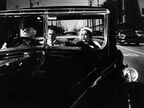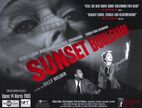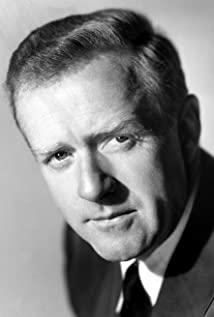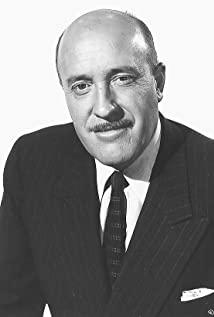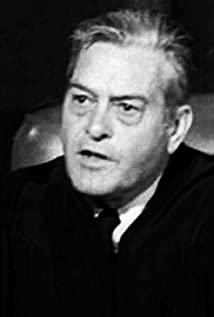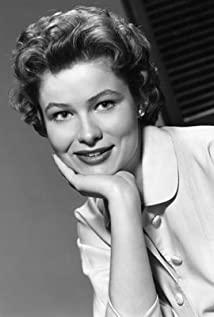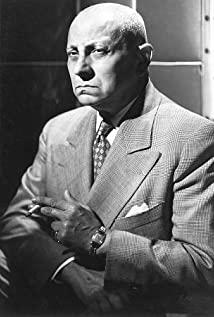It is finally a movie that has captured the hearts of people from the very beginning.
At the beginning of the film, the audience is not led by the camera to a strange and distant world that they have not stepped into, but is led by Joe, a calm and carnival who belongs to the modern world, into a closed old castle. Knowing that all the strangeness, explosion, sweetness, intoxication, and silence will happen in this small, dark place, there is a strange sense of security in my heart.
Sunset Boulevard is a movie about movies. Just as novels can think about themselves, so can films. What is more special is that what the talkie film "Sunset Boulevard" shows and thinks about is the silent film that has been squeezed out of the mainstream by the talkie film it represents. When the last sign of Paramount appeared, it was somewhat ironic to think of what Norma had repeatedly said before, that it was Paramount that she held up with one hand, and then how Paramount abandoned her in the end.
Norma, seen from Joe's point of view, has always been a gorgeous, crazy, neurotic woman. But when she jumped out from behind the wall dressed as Chaplin, it made people have the urge to cry. At this time, Norma seemed to have returned to the seventeen-year-old girl at the time, full of aura and talent, and played Chaplin vividly. Norma's tragedy lies in the simplicity and superficiality of her thinking. In fact, her economic ability is completely enough to jump out of the sweet dreams of the past. She has oil fields, real estate, and endless money, and she can easily integrate into the outside world through other means. But the only thing she pursues is to become an immortal star, always sought after and infatuated by everyone.
The movie Sunset Boulevard bears a lot of resemblance to some other films and literature.
"A Streetcar Named Desire" shot in the same era (1950s), and "Sunset Boulevard" can be said to be exactly the same in style and personal temperament of the protagonist. Black and white films with a grand classical soundtrack set a similar tone. And the two heroines, Norma and Blanche, live in their own fantasies. The former's fantasy is a silent movie star, while the latter can't get rid of the past life of Miss Rich in the South. Because norma is rich, even if she is no longer a superstar, she can also guarantee her own safety and material enjoyment. After the decline of blanche in the south, it can only deal with men in order to protect themselves. Therefore, norma was in a dominant position in front of a down-and-out man like joe and could fight against him, while blanche ended up being raped by her brother-in-law to the point of a nervous breakdown. But the final plot of the two films is so similar: the mad women laugh happily and sweetly amid the lies woven by everyone, from their own homes to the world that will treat them. The drastic changes of the times, the conflict between old and new forces, the weak become the victims in the middle, run over by the rumbling wheels, and the soul becomes a piece of debris. And women are often the words of the weak in these works.
Another similar work is Mulholland Drive by David Lynch in 2001. Both films are stories sparked by a road, sunset boulevard and mulholland. The love encounters of the two protagonists are similar and opposite. Because Mulholland Drive is just a nightmare for the heroine, Betty. In reality, Diane went to Hollywood to find her dream and met her lover, Camilla, but later her more and more popular lover and director fell in love and betrayed her, who was struggling in her career, so Diane hired a murderer to kill her, and in a big dream (that is, Mulholland Drive) main plot) fantasizes about being the stronger party. When she woke up from the dream, she was overwhelmed by the pressure in the face of reality, and finally committed suicide by drinking a bullet. Norma seems strong, but after being betrayed by joe, she humbly begs him not to leave, and shoots joe in a panic and collapse in vain. Mulholland Drive is also a tragedy in which the protagonist cannot accept reality.
Finally, a piece of literature that I find very similar is Faulkner's short story "A Rose for Emily," written in 1930. It is another tragedy under the conflict of values after the outbreak of the American Civil War. After her father's death, Emily, a stubborn and conservative southern aristocratic lady who has been strictly educated since childhood, falls in love with Bolong, a northern worker. As he was about to leave, she poisoned him and hid him for decades in her home, beside her pillow. In these decades, only one black servant has been with her in the secluded house.
At the beginning of Sunset Boulevard, when joe first broke into norma's house and saw her upstairs, standing next to a masked body, I thought it was Emily's story again. Decaying mansions, eccentric women, only servants and mysterious corpses.
The background of these four works is an era of drastic change. Except for Mulholland Drive, the other trilogy are in the 1930s-1950s. And the protagonists are all women. The heroine of Mulholland Drive is also the most sober, and the three other contemporaries appear as maddened figures. The weakest blanche is powerless against her brother-in-law, and the other women can only be balanced by murder, confronting their own annihilation with the eternal death of the individual in the mainstream.
Beauvoir talks about the transcendence of men and the immanence of women in The Second Sex. This is evident in Sunset Boulevard. Norma, in his fifties, is still indulging in past fantasies, but directors in their seventies have always been the mainstay of the film's development in reality. On the surface, none of the four women have gained their own sovereignty in their careers. Norma is a star admired by the audience, who determines her own existence in the infatuation of others; blanche can only seek refuge in men; diane is nowhere in Hollywood; and emily has never entered the society. But is this lack of subjectivity real, or is it a fictional character? If norma has the ability to buy oil fields and real estate, why can't it take the initiative to change its role? Does the movie just create a tragedy that doesn't exist for the sake of tragedy?
Norma's actors have overlapping experiences with the character. Gloria was once a superstar in the silent film era. She transformed after the appearance of talkies. Although her popularity is no longer as popular as before, she also has many works. At least with "Sunset Boulevard", she was nominated for an Oscar for best actress. The tragedy of norma may not be real. But people who are twisted by the times will always exist.
View more about Sunset Blvd. reviews



